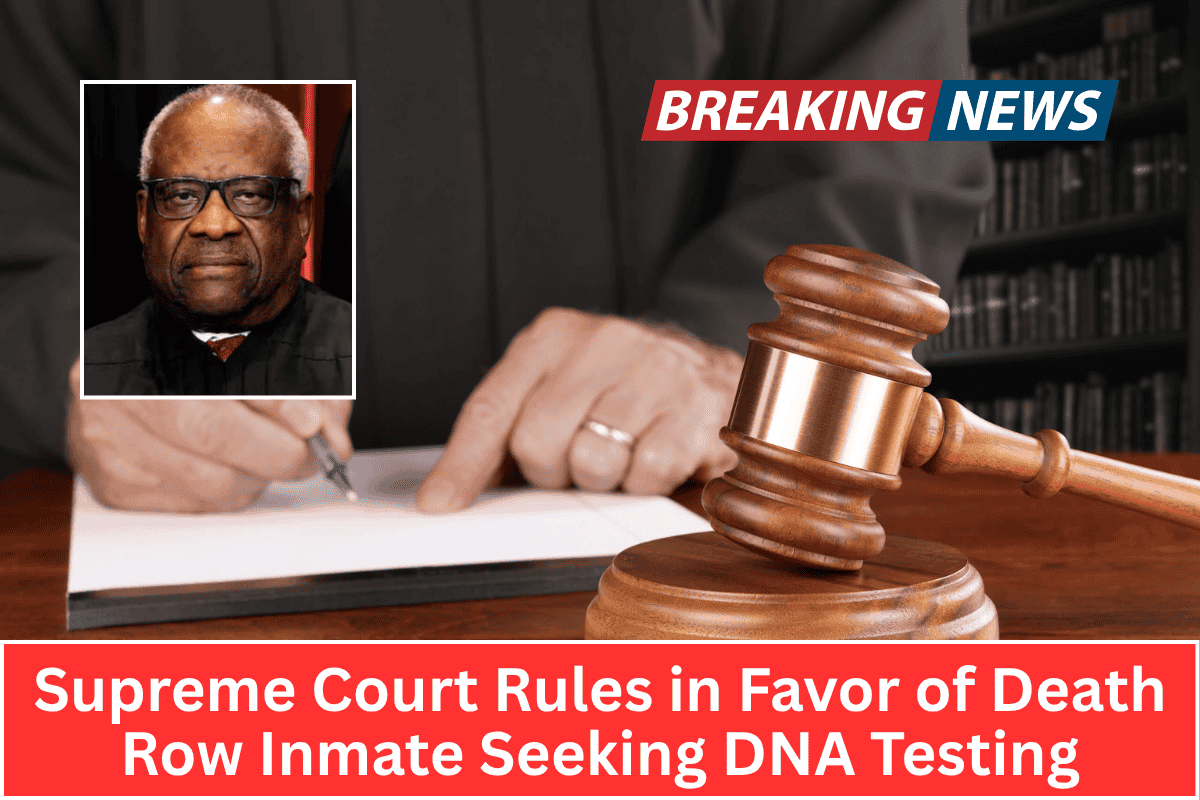The U.S. Supreme Court recently made a significant ruling regarding Ruben Gutierrez, a death row inmate in Texas.
Gutierrez has long claimed that he did not murder 85-year-old Escolastica Harrison in 1998, and after narrowly avoiding execution in 2020 and 2024, he is now allowed to sue a local district attorney who refuses to allow DNA testing on evidence from the crime scene.
This decision opens the door for Gutierrez to challenge the Texas criminal justice system’s DNA testing procedures and raises important questions about due process rights in capital cases.
The Case of Ruben Gutierrez
Ruben Gutierrez has been on death row since 1999 for the murder of Escolastica Harrison, a retired teacher who was stabbed to death in her Brownsville, Texas home. Although Gutierrez admitted to planning the robbery, he denies killing Harrison, claiming that DNA evidence would prove his innocence.
He argues that a confession he made was coerced by the police. Gutierrez’s case has been contentious, with him now seeking DNA testing of evidence collected from the crime scene, including blood, nail scrapings, and hair.
Despite Gutierrez’s claims of innocence, the district attorney, Luis Saenz, has refused to allow further DNA testing. This refusal led Gutierrez to file a lawsuit against Saenz, challenging the constitutionality of Texas’ postconviction DNA testing procedures.
The central question in this lawsuit is whether Gutierrez should be allowed to challenge the state’s procedures for DNA testing under the Due Process Clause of the Constitution.
Supreme Court Ruling
In a decision led by Justice Sonia Sotomayor, the Supreme Court ruled that Gutierrez has standing to sue the district attorney for civil rights violations. This ruling means that Gutierrez can now challenge Texas’ DNA testing procedures as part of his due process rights under federal law.
The majority opinion noted that Gutierrez had a “liberty interest” in being able to prove his innocence through DNA testing, similar to a previous case involving inmate Rodney Reed.
Justice Sotomayor’s ruling emphasizes the importance of access to post-conviction DNA testing, especially for those who claim to be innocent. She explained that Gutierrez’s situation should be treated like any other case where DNA testing could exonerate someone wrongfully convicted.
This decision allows Gutierrez to challenge the procedures Texas uses for post-conviction DNA testing under federal civil rights law (42 U.S. Code § 1983).
Dissenting Opinions
Despite the majority opinion, there were strong dissenting views from Justices Clarence Thomas and Samuel Alito, joined by Justice Neil Gorsuch. Thomas argued that the Supreme Court should not have intervened in this case, claiming it would only delay the legal process in capital cases.
He stated that the Due Process Clause does not guarantee an inmate the right to challenge state post-conviction procedures, arguing that these procedures were not meant to be a tool for obstructing the judicial process.
Thomas also expressed skepticism about Gutierrez’s claims of innocence, pointing out that his confession and the statements of his accomplices contradicted his current claims. Thomas warned that allowing death row inmates to challenge DNA testing procedures would create more delays in capital punishment cases, further complicating the justice system.
The Impact on the Legal System
This ruling is important not only for Gutierrez but for the broader conversation around post-conviction DNA testing and the rights of death row inmates.
The decision could set a precedent for future cases involving inmates who claim they were wrongfully convicted. It also brings attention to the challenges of ensuring fair treatment in death penalty cases, particularly when new evidence such as DNA testing could potentially exonerate an inmate.
However, the dissenting opinions highlight the tension between ensuring justice for those claiming innocence and preventing unnecessary delays in the legal process. With the complexity of death penalty cases, the balance between fair trials and timely executions remains a contentious issue in the U.S. legal system.






